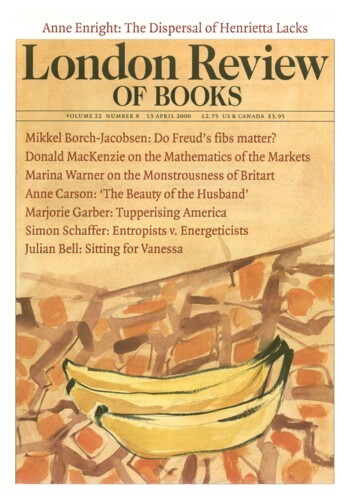Burning isn’t the only way to lose a book
Matthew Battles, 13 April 2000
The story of the burning of the Greatest Library of the Ancient World by the Arabs is well known: John the Grammarian, a Coptic priest living in Alexandria at the time of the Arab conquest in 641 AD, came to know ‘Amr, the Muslim general who conquered the city. The men were each other’s intellectual peers, and John became the Emir’s trusted adviser. Soon, John grew bold enough to ask ‘Amr what might be done with the ‘books of wisdom’ held in the ‘royal treasuries’, going on to tell him of the great collections amassed by Ptolemy Philadelphus and his successors. ‘Amr replied that he could not decide the fate of the books without consulting the Caliph, Omar. The Caliph’s answer, quoted here from Alfred Butler’s Arab Conquest of Egypt (1902), is infamous: ‘Touching the books you mention, if what is written in them agrees with the Book of God, they are not required; if it disagrees, they are not desired. Destroy them therefore.’ According to tradition, the scrolls were bundled up and delivered to the city’s baths, where it is said they kept the waters of the calidaria warm for six months.‘

